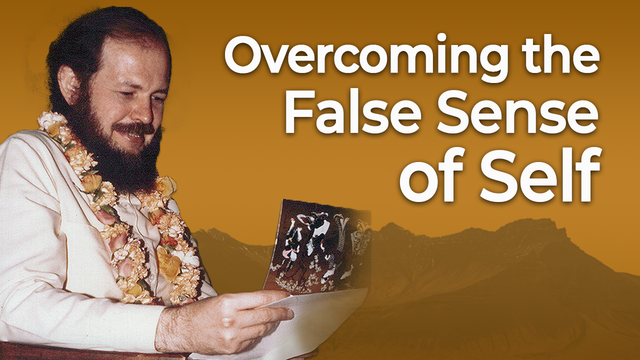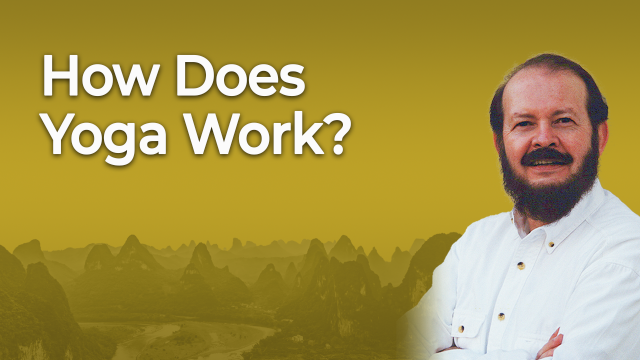
Ramakrishna Ananda
The Choice
Most people see their lives through distorted perceptions. Do you?
How do you choose to look at your life? So much of your future delight or sorrow is a matter of choice. Choice.
Consider the elderly man who sat red-faced and fuming in his car. He shook as he tucked the nitroglycerine tablets into his mouth, hopeful they would forestall another coronary.
“You have no idea how to drive that van, young man,” he shouted. “Did you call the police?” he asked the sneering fellow. “You ruined it, my new car.
“Worked all my life for a car like this,” the old man muttered to the air as he closed his window. “What if the police believe that young fool? What if they say it’s my fault? Why, he was going too fast, never even looked around. I’ve been driving on this street thirty years.
 “I need to drive. I know I don’t see so well, but I need to drive. I’m an important man. And my wife needs me to drive her, especially now that she’s sick,” he decided, rationalizing, trying to calm his racing heart. “There’s no way we can get around by taxi. Not here. How would we ever go to our cabin? What if the police believe that young idiot? He’s acting like it’s my fault. Snickering at me. When I was his age I thought I owned the road, too. If I can’t drive, how will I see my grandchildren?”
“I need to drive. I know I don’t see so well, but I need to drive. I’m an important man. And my wife needs me to drive her, especially now that she’s sick,” he decided, rationalizing, trying to calm his racing heart. “There’s no way we can get around by taxi. Not here. How would we ever go to our cabin? What if the police believe that young idiot? He’s acting like it’s my fault. Snickering at me. When I was his age I thought I owned the road, too. If I can’t drive, how will I see my grandchildren?”
A young policeman arrived shortly. The van driver went to him and waved his arms. He laughed and threw both hands in the air in apparent exasperation.
The policeman, who looked like a high-school kid, approached the old man. “Have you ever had a course on how to drive a car, sir?”
The old man lost his breath and collapsed in another heart attack.
Sure that he had been found guilty, the elderly gentleman chose to think he had lost almost everything. Fortunately, he lived to learn that the policeman was new at his job and was required, because of a survey, to ask all drivers in all car accidents whether they had been to driving school!
The poor man had chosen to see matters in a tragic way.
Distorted Perceptions
The way we choose to see life most of the time is based on the flow of our thoughts and feelings. And, usually, the way we speak or act is, again, based on our thoughts and feelings. Our mental/emotional habits often distort our perceptions of what is happening in the outer world. Not too many people have elected to be conscious enough to notice what is going on in reality. There’s too much chaos inside people for them to be able to see life’s events clearly. Riots have occurred over two cents. People have been shot because of what somebody wrongly thought or blindly felt. The famous medieval scholar, Peter Abelard, was castrated because Canon Fulbert thought Peter was forcing Fulbert’s niece, Heloise, to become a nun. Peter was, in fact, scholars report, helping Heloise to hide in a convent far from the grasp of her uncle.
Your consciousness — that is, your thoughts, feelings, actions, and awareness of the outer world — is the main force toward life-enrichment.
Awareness Exercises
Your thoughts and feelings, for good or ill, usually dominate your perceptions of the outer world and so many of your actions. So, to stop the self-destructive tyranny of chaotic, incorrect thoughts and feelings, start now to do exercises of simply watching your thoughts or feelings come and go. Become familiar with the content of your mind and the myriad flows of your emotions. Also, strive to be truly aware of what your senses are conveying from the outer world.
One more extremely valuable practice: rather than simply reacting to important events by habit, strive to allow your actions to express your well-considered thoughts. In this way you will give your creative intelligence a chance to make your acquaintance.
 Yes. There is no premium content behind a paywall. Ramakrishna Ananda wishes to make these yoga truths, practices and information available to all seekers.
Yes. There is no premium content behind a paywall. Ramakrishna Ananda wishes to make these yoga truths, practices and information available to all seekers.





